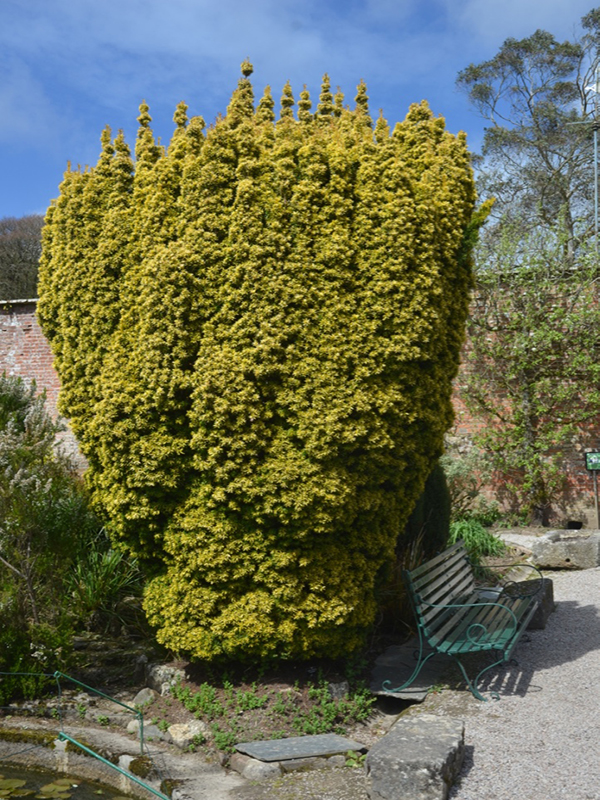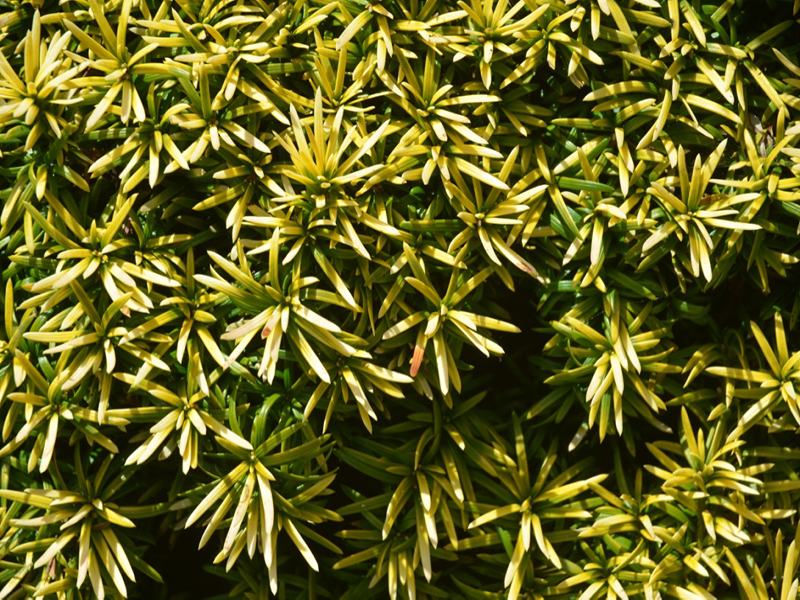
Woody > Taxus > Taxus baccata > Taxus baccata 'Standishii'
Taxus baccata
'Standishii'
Standish Irish Yew, English Yew, Common Yew
Origin: The species is native to Europe, southwestern Asia and northern Africa.
| Family |
| Taxaceae |
| Genus |
| Taxus |
| Species |
| baccata |
| Cultivar |
| 'Standishii' |
| Category |
| Woody |
| Type |
| Shrub (evergreen) |
| Pronunciation |
| USDA Hardiness Zone |
| 5 - 8 |
| Canadian Hardiness Zone |
| 6a - 8a |
| RHS Hardiness Zone |
| H4 - H7 |
| Temperature (°C) |
| -23 -(-7) |
| Temperature (°F) |
| -10 - 20 |
| Height |
| 1.5 - 3 m |
| Spread |
| 30 - 45 cm |
Photographs
Description and Growing Information
Flowering Period
| General Description |
| A dense, columnar, slow-growing medium-sized evergreen shrub with erect branches clothed in spreading, rich yellow leaves. |
| Landscape |
| Excellent for small gardens, specimen or accent, and rock gardens. |
| Cultivation |
| Taxus baccata 'Standishii' is surprisingly tolerant of a wide variety of soils from clay to sandy sites. In poor soils it is best to amend to area with added organic matter and to water regularly until the plants are established. Once established it is quite drought tolerant, but would appreciate an occasional watering during dry summers. As with most yews it can tolerate full sun to full shade, but the golden color vanishes in excessive shade. For the best foliage colour give it sun all day. It will tolerate heavy pruning and is one of the few conifers that will sprout from old wood, but typical plants will require very little pruning other than removing the occasional small branch growing out of shape. |
| Shape |
| A long-lived, conical evergreen plant. |
| Growth |
| Slow |
| ID Characteristic |
| Best yellow foliage colour occurs in sunny locations. Foliage colour in shade tends to be greenish-yellow. |
| Pests |
| Tortrix moth, vine weevil, gall mites, scale insects, and phytophthora root diseases may be of concern. |
| Habitat |
| Horticultural origin. |
| Bark/Stem Description |
| Old trees develop thick trunks with scaly reddish-brown bark. |
| Leaf Description |
| Lustrous, flat-needled, two-ranked, dark green foliage, needles to 5 cm long. Young shoots emerge light green. |
| Fruit Description |
| A red, berry-like fruit, having a single seed almost completely surrounded by a fleshy red aril. |
| Notable Specimens |
| Trengwainton Garden, Madron, near Penzance, Cornwall, United Kingdom. |
| Propagation |
| By semi-hardwood cuttings or grafting. |
.jpg)
.jpg)


